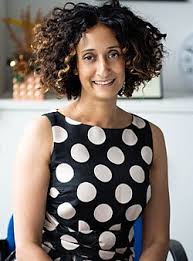The Impact of Katharine Birbalsingh on UK Education

Introduction
Katharine Birbalsingh is a prominent British educator and the headmistress of the Michaela Community School in London. Her approach to education has sparked widespread discussion and controversy, making her a significant figure in contemporary discussions about reforms in the UK’s educational system. Birbalsingh has advocated for strict discipline and a focus on academic rigour, which poses a stark contrast to more progressive teaching methods currently favoured in some circles. Understanding her methods and their implications is pivotal for educators, policymakers, and parents alike.
Background and Career Highlights
Birbalsingh first gained national attention in 2010 when she delivered a passionate speech at the Conservative Party conference, where she spoke about her vision for education reform. She has been an outspoken critic of the state education system in the UK, arguing that low expectations and a lack of discipline have resulted in underachievement among students. In 2014, she founded Michaela Community School in Wembley, which shifted the paradigm of the traditional schooling system by implementing high standards of behaviour and academic excellence.
Teaching Philosophy and Innovations
Birbalsingh’s educational philosophy encompasses a strong belief in the importance of knowledge, discipline, and traditional teaching methods. At Michaela, the curriculum focuses on memorisation and mastery of subjects, which she believes is essential for student success. The school also employs a zero-tolerance approach to misbehaviour, which has proved successful, attracting attention for its academic results. Birbalsingh has also been an advocate for giving teachers more autonomy in the classroom, urging policymakers to trust educators to make decisions that best serve their students.
Controversy and Response
Despite her successes, Birbalsingh has faced significant criticism from detractors who argue that her methods may be overly strict and do not account for the diverse needs of all students. Critics claim that her approach could reinforce systemic inequalities and fail to develop critical thinking skills. However, supporters argue that her results speak for themselves, pointing to Michaela’s impressive exam results and the positive experiences shared by students and parents alike.
Conclusion
Katharine Birbalsingh remains a polarising figure in the UK education landscape. As reforms continue to evolve, her methods and results will likely play a vital role in the broader discussion on improving education within the nation. Observers will be keen to see if her model will inspire more schools or if resistance to her methods will continue to grow. Regardless, her influence on the debate surrounding educational reform cannot be overstated, and her commitment to academic excellence highlights an important conversation about the future of schooling in the UK.
